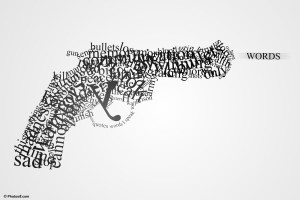(Guest Post by Jamie Turndorf, originally featured in Psychology Today)
Whether you’re getting it off your chest, venting, expressing yourself, airing your feelings or “just being honest,” the truth about honesty is that honesty is not always the best policy.
What’s more, continuing on the path of full disclosure can actually put a permanent closure on your relationships!
The reality is we don’t need knives or guns to mortally wound those closest to us. Words cut like knives and it’s easy to bury your relationship with the verbal cuts of a “truthful” tongue.
The truth is honesty is often a veiled form of self-indulgence.
What do I mean by self-indulgence?
In a nutshell, when feelings build up, it’s frustrating to “sit” on them. And, of course, it feels damn good to release them. That feel good sensation is a form of gratification. It’s like taking an emotional poop, which provides an instant release of pressure. But when we dump emotional turds on others, we are flushing our relationships down the toilet.
It’s a sad fact that our education at home and in school doesn’t include teaching us how to manage our angry feelings. Since intimate relationships trigger negative feelings, this means most of us are mistreating the people we love most by lashing out and even verbally killing those we supposedly love in various overt and symbolic ways.
In my book Till Death Do Us Part (Unless I Kill You First), soon to be republished by Hay House under the title Kiss Your Fights Goodbye: Dr. Love’s 10 Simple Steps to Cooling Conflict and Rekindling Your Connection (link is external), I talk about what I call Fight Traps, which are the dysfunctional ways that humans act out anger. These Traps consist of Open Warfare, such as Name Calling, Character Assassination, Put Downs and Sarcasm, to name but a few, and Secret Warfare, such as Silent Treatment, I Forgot, Recruiting Allies, and so on.
The point here is there’s a continuum of dumping that ranges from outright physical violence on the one end of the spectrum to far subtler forms of aggression—honesty being the subtlest of all forms of assault.
While we may feel temporarily relieved when we shoot off rounds of honesty, we pay a terrible price for this temporary satisfaction, as we harm our relationships and our own self esteem (you can’t feel proud of yourself when you misbehave).
The good news is you can make the decision to change the way you handle your angry feelings; to consider what you say before you speak, to ask yourself how the other person will feel before you say or do x, y or z. To consider whether what you intend to say or do will be helpful and constructive to the other person and your relationship or not.
It’s also important to remember that anger is never the primary emotion. When we become angry, it’s because we feel other more basic and vulnerable feelings such as hurt, sadness and fear.
Making the decision to get beneath the veneer of anger and speak from the most vulnerable part of your emotional core is the ticket. When you honestly speak from this place, you arouse a feeling of empathy rather than antipathy. This one simple shift is your secret to turning conflict into connection by fostering a truly intimate and loving relationship that is based on the right kind of honesty.




Quick Links to our Social Media Sites